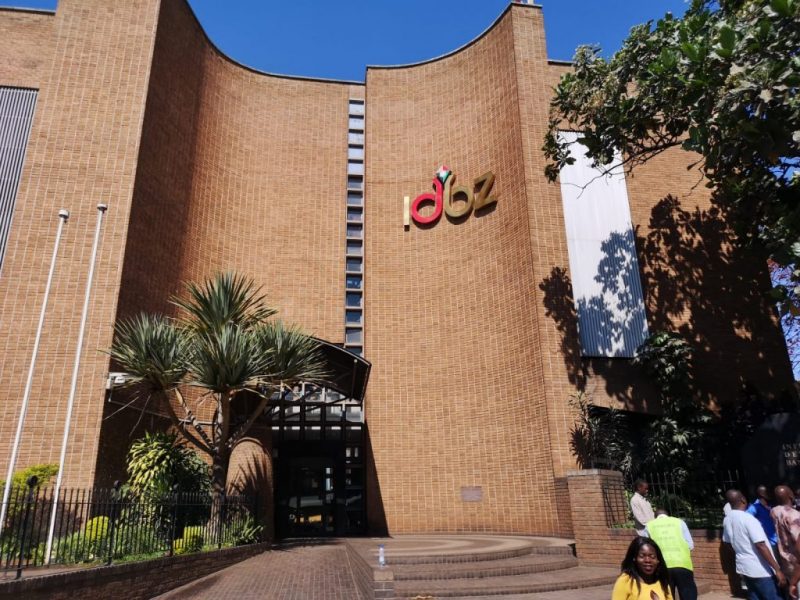ZNCC 2024 national budget expectations
THE Zimbabwe National Chamber of Commerce (ZNCC) says it is imperative for the 2024 national budget to place emphasis on broadening the use of local currency, tackle currency stability, promote private sector participation in economic recovery and focusing on productivity in sectors such as agriculture, mining, education and manufacturing.
The 2024 budget consultation process is set to commence soon and various economic bodies are expected to give their input.
The budget is traditionally announced in November.
In August, the Finance, Economic Development and Investment Promotion ministry outlined an elaborate 2024 National Budget strategy that projects revenue collections to be $30,7 trillion against expenditures of $33,1 trillion, resulting in a budget deficit of $2,3 trillion as the economy is poised for 5,3 percent growth this year, much higher than the original projection of 3,8 percent.
The 2024 National Budget strategy running under the theme “Consolidating Economic Transformation” seeks to scale up domestic resource mobilisation, deepen economic transformation and promote both domestic and foreign investment in support of programmes and projects that will deliver on the National Development Strategy 1 (NDS 1) priorities.
NDS-1 is the Government’s economic blueprint running from 2021 to 2025 and is anchored on devolution, decentralisation and prudent use of national resources for the benefit of all citizens.
It is the second step in the Second Republic’s thrust to attain an upper middle-income economy by 2030 and is a successor to the Transitional Stabilisation Programme.
This year marks the midpoint in the implementation of NDS1, the second of three successive Government national development plans aimed at achieving the country’s Vision of an Empowered and Prosperous Upper Middle-Income Society by 2030.
In its submissions, ZNCC said halfway through the implementation of NDS1, its broad membership recognises efforts taken by the Government in spearheading economic progress towards the attainment of an upper-middle-income society by 2030.
“In a nutshell, the points of focus for Zimbabwe going forward are deepening currency stability, reversing negative perceptions (the state of peace after the election is critical) and focusing on productivity not production in sectors such as agriculture, mining, education and manufacturing, among others.
“In this regard, the sub-themes for the upcoming 2024 National Budget Statement should be aligned to sustainable revival of the economy and employment creation through well-targeted tax incentives and higher spending on, or allocation to productive sectors of the economy.”
On local currency usage, ZNCC said it appreciates the measures that were put in place in May 2023, among them, allowing the settlement for Government’s services to be partly or wholly in local currency.
Although the Government, through the Ministry of Finance, Economic Development and Investment Promotion has shown a willingness to implement this, some Government institutions and local authorities still insist on or favour foreign currency payments.
“We, therefore, appeal to the Government of Zimbabwe, across the board, to deepen the use of the Zimbabwean dollar by making it mandatory that payment for any Government’s services should be settled in local currency.
“The Government should be the leader, as the issuer of the domestic currency, in accepting and reporting in local currency. The need for our currency to function and be accepted in both public and private sectors cannot be over-emphasised. All taxes, fees, and levies should be paid for in local currency.”
Turning to the multi-currency regime, ZNCC said there is a need for clarity in terms of the multi-currency regime, noting that the Government announced last year that the multi-currency regime will be in force for the duration of the National Development Strategy I (NDS1).
“This has created problems for the financial sector. Banks are unwilling to extend credit towards long-term projects or capital expenditure projects, especially in foreign currency given the hazy outlook post 2025 – in the process threatening the forecasted GDP numbers due to credit collapse in the economy.
“The policy position on currency has weakened the mortgage market. The majority of the financial institutions can no longer afford to enter mortgage arrangements given that most of these average five years in the Zimbabwean market.”
Last week during a Press briefing on the IMF/World Bank Spring meetings, the Government through Finance Minister Professor Mthuli Ncube assured investors and businesses operating in the country that any policy decision to be adopted upon the expiry of the current term of the multi-currency regime, which runs through 2025, will protect the interests of key stakeholders.
ZNCC further said the bonus threshold should be reviewed upward in line with the current economic environment and proposed a reduction of the value added tax (VAT) from the current 15 percent to 14 percent in an endeavour to boost aggregate demand in the economy.
ZNCC said for the country to achieve fiscal consolidation in the 2024 National Budget, in which great strides have been made in the preceding one, there is a need to reduce wasteful expenditure and financial leakages in the implementation of Government projects and programmes.
“Treasury is compelled to timely disburse resources to the respective Ministries, Departments, and Agencies, (MDAs) and facilitate constituency development by providing adequate resources to local authorities,” it added.
In view of record receipts in diaspora remittances and the lack of external budget support, ZNCC said it will be prudent for the Government to introduce a Diaspora Bond in an effort to harness financing for mega infrastructure projects such as roads.
According to the Reserve Bank of Zimbabwe 2023 Mid-Term Monetary Policy Statement, diaspora remittances received between January and June 2023 amounted to US$919 million, a 16 percent increase from US$797 million which was recorded during the same period last year. The total figure for 2022 was US$1,66 billion.
“The ‘unfortunate’ part is that the bigger part of these earnings is outside the formal channels and the greater portion of the receipts are going towards household consumption. Therefore, the introduction of a Diaspora Bond is expected to retain the greater part of the remittances into the formal channel and even increase international remittances as the expatriates are expected to invest in such a bond subject to the degree of risk and return.”-chronicle










